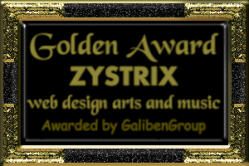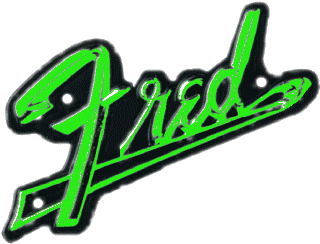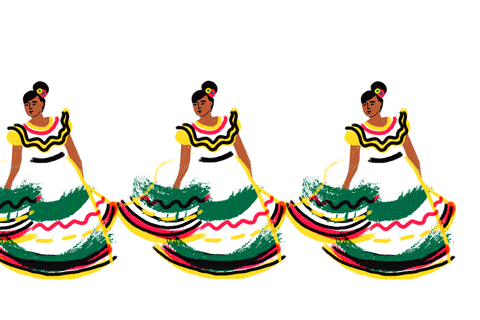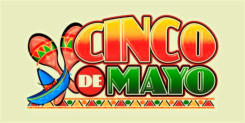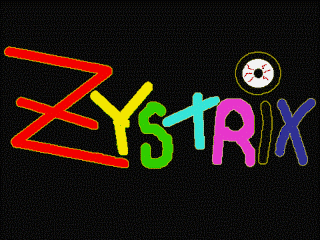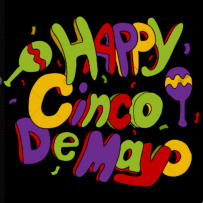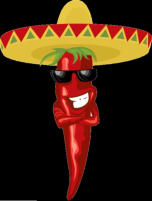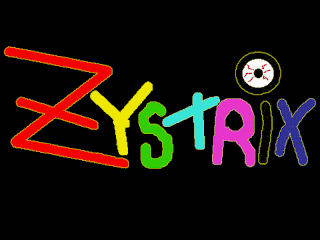What’s new at Zystrix? Read on…
May 1st, 2023
Before I go into the continuing saga of
how to record metal and rock guitar there
are four important things I’d like to cover
quickly. The first one is…
Happy Cinco De Mayo
Cinco de Mayo, or the fifth of May, is an annual celebration of the
anniversary of Mexico's victory over the Second French Empire at the
Battle of Puebla back in 1862. It is often mistakenly thought of as
Mexico's Independence Day. After
the end of the American Civil War
(1865) the United States began
loaning money and weapons to the
Mexican liberals thus pushing the
French and the Mexican
Conservatives to the edge of defeat.
In 1866 France withdrew their troops
from Mexico. Since then, because of
intense alcohol advertising over the
years, USA beer sales for the celebration are now competitive with
Super Bowl sales. I think I’ll purchase a six-pack
of cold Bohemia – my favorite Mexican beer.
Happy Mother’s Day
Mother’s Day is celebrated at various times, usually in March or May,
in over 40 countries. In the USA it is an annual celebration on the
second Sunday of May and it
happens to fall on the 14th this
year. President Woodrow
Wilson signed a proclamation in
1914 designating Mother's Day
as a national holiday to honor
all mothers. Motherhood and
moms are a beautiful thing.
Here’s a salute to the best
mother who ever lived -- yours.
The World of Music is
Changing Once Again
There are two new VST downloads available that have begun to
shakeup the way musicians think about playing and recording. Both of
them are open source which means both of them are FREE. If you
like digital modelers like Kemper or Tonex then you may like these:
the N.A.M. or Neural Amp Modeler and the Proteus by Guitar ML.
Lookup Jason Zdora’s video How to use NAM Neural Amp
Modeler EASY MODE, get the downloads, and treat yourself to the
world of amp modeling. Do they sound as good as a Kemper?
Well, they sound damn good and I can’t say I can tell them apart,
but you have to be the final judge. Given the choice between either
of these free modelers (or both) or spending hundreds of dollars for
a commercial version I suspect the time has come to say goodbye
to expensive gear. And over time I suspect more musicians will join
the various groups to share their sound designs, and that’s a beautiful
thing. I’ve got a couple I would share. “Oh, the times they are a
changing”. Knowledge, art, and music for all…
New Music
Here’s a couple of new tunes from Dangerous Neighbors. I think
these may go on the album for the new book as introductions to
other tunes. Should they go on the new album? You be the judge.
One is a classical guitar piece and the other is a piano piece. You
can hear them on the Dangerous Neighbors page. Enjoy.
And now on with the show…
How to Record Metal Guitar
How to Record Rock Guitar
This Zystrix posting is the seventh of a several part series designed to
help a person record guitar, specifically metal and rock guitar, no
matter your skill level. And the main crux is how to do an excellent job
on a low budget. Please know that there are many types of gear that
are glossed over or omitted here because there’s just too much great
gear to list.
Last time in part six we covered the last of the pedals. For a review
click on the arrow pointing left by the wrist watch at the top of this page
and click on the yellow megaphone to come back here.
This time I’d like to go over gain staging, or as many people call it,
pedal stacking. This may seem mundane and boring to some, but it
can impact your sound in subtle and not-so-subtle ways. So make a
taco or burritto or have one delivered, take your shoes off, crack open
a cold Bohemia, and enjoy. And away we go…
How to Record Killer Metal and Rock
Guitar
The Ultimate Guide
(Part Seven)
THE FINE PRINT: Zystrix is not and has never been a participant in any advertising program including but
not limited to the Amazon Services LLC Associates Program, Sweetwater, or any other affiliate advertising
program designed to provide a means for sites to earn advertising fees from readers by click-through
advertising and linking to the aforementioned or any other companies. Zystrix does not use Google
Analytics, therefore this site is not required to have those annoying cookie agreement popups. Zystrix has
no links associated with the sale of any products, and we do not allow this. This keeps our reviews
honest, cuts out any unnecessary middle man, and keeps this website free from cookies and the
influences of Google and other unethical purveyors of your digital exhaust and personal information. It’s
our mantra
Pedal Stacking or Gain Staging
The most important thing a guitarist has for injecting their own
personality into their sound is their pedal board. Period. And I know
there are going to be moans and groans about cabinets and amps
making more of a difference. And yes, they do make a big difference,
especially the IR (impulse response) or real cabinets with real
microphones. But it’s the choice of pedals that is intimately tied to the
sound and sonic personality of the performer. And since the pedal
market is glutted with great sounding physical pedals from the
expensive to the many free downloads (L.A. Lady downloadable tones
by Source Audio or N.A.M. Neural Amp Modeler tones) there is no real
reason to forego the sound you really want. And complex and original
guitar tones are easy to achieve by stacking your gain (distortion)
pedals. And a personal tone sets you apart from other guitar players.
You’ve probably noticed that some guitar players are distinguishable
by the sound of just a few notes, some by their technique, and some
by both. What we are trying to do (I hope) is design a sound that is
yours. It’s would be nice if someone could tell it’s you playing just by
hearing you warm up. So giving thought to your pedal choices and the
setup is imperative.
So you have decided on a sound and purchased the pedals you want.
Once you have the pedals of your choice it’s time to decide how you
want your sound to be based, or figure out what sound forward you
desire. This is because the last pedal in the chain will dictate the
overall sound of the stack. Don’t forget that your amplifier can and will
also be a player in this chain-of-gain. Then it becomes a balancing act
to refine the tones for that perfect mix. Since the final pedal dictates
the volume and most of the EQ of the overall pedal stack, the pedals
that come before assist in imparting their particular attitude and grind
(distortion) to the sound. And as the previous pedals get louder they
tend to distort the final pedal but they don’t add much volume. This is
one of the reasons the desired sound is a gain-staging balancing act.
Let’s invent a two-pedal example for ease of explanation and just plain
fun. Run your amplifier sound neutral for this experiment and then turn
up the amp gain later as needed. Let’s say your favorite pedals are
the Tube Screamer (any original or copy) and a Metal Muff by Electro
Harmonix. By simple inspection (because I know the sound of the
these two pedals) it just makes sense to me to have the Tube
Screamer first in the chain because the Metal Muff is the dominant
sonic personality and that’s what I prefer. However it could be
connected in reverse, but I think the tube screamer makes an odd
choice for a main sound. Let your ear be the judge. As a different and
more difficult example say you have a Pure Sky by Caline, the Golden
Plexi 2 by Tone City, and the Dyna Comp by MXR. What order would
you use? A lot depends on what end sound you desire, but I would
start with the Dyna Comp first and the Golden Plexi 2 last. The reason
I say that is the Dyna Comp will even out the guitar signal for the Pure
Sky. Once the Pure Sky is adjusted to the dirt or distortion you prefer
then the Golden Plexi 2 would add the final “amplifier” touch with a
plexi type of grind. But once again it can be any order, it depends on
the final sonic outcome you prefer. So the rule here to remember is
the last pedal dictates the overall sound (and a lot of the EQ). Do you
have a favorite distortion pedal? Put that one last in the chain. Now
here’s an interesting and complex choice of pedals: the G4 by Revv,
the Distortion Plus by MXR, the Rat by ProCo, the Blues Driver by
Boss, the Tumnus by Wampler, and the Throttle Box by Mesa Boogie.
What order would you guess they be in? Which pedal should be
second in the chain? We’ll cover the answers to this quiz later.
Another way to view pedal stacking is to consider pedals fitting into
two camps: overdrive (distortion) and volume boost. The “boost” pedal
used can have the gain turned down and the volume turned up. The
overdrive (distortion) pedal would have the distortion turned up with
the level set to a normal or unity gain. This method of pedal stacking
produces clever and unpredictable sounds depending simply on how
the pedal is viewed. For instance, getting back to the Tube Screamer
(any original or copy) and a Metal Muff by Electro Harmonix example
above, the Tube Screamer can be used as the boost or last pedal with
the Metal Muff set at unity with the distortion set to something less
aggressive. Now the Tube Screamer becomes the final EQ and
volume dictating the overall sound of the pedal stack. I suspect this
arrangement of these two pedals would be odd but usable. Another
way to approach pedal stacking is if you want your sound fat and
distorted put the most distorted pedal last. If you want your sound
cleaner with more headroom then put the cleanest gain pedal last.
So let’s get back to the pedal stacking questions above about the
pedal order of the G4 by Revv, the Distortion Plus by MXR, the Rat by
ProCo, the Blues Driver by Boss, the Tumnus by Wampler, and the
Throttle Box by Mesa Boogie. Did you figure it out? I always
approach this kind of problem with the last pedal in the chain decided
first and then I generally work backwards from there. Since I like the
G4 for the amp realism it imparts I would run it as the last pedal with
the gain turned down somewhat (at least for now). Then I would
decide which distortion I liked the best and put that just before the G4.
In this case I prefer the Throttle Box. Since I prefer the Distortion Plus
over the Rat I would put the Distortion Plus after the Rat. Hmm, but
what about the Tumnus and the Blues Driver? Since the Blues Driver
has a nice amp-like distortion I would run this one before the Throttle
Box. Since the Tumnus has such a sweet overdrive I would use it to
tame down the angular distortion sounds of the Rat and the Distortion
Plus, so the Tumnus would go before the Blues Driver. That leaves
the Distortion Plus before the Tumnus and the Rat at the beginning of
the pedal chain. I would run the Rat at unity volume and EQ -- the
distortion would be turned very low. I would do the same for the
Distortion Plus and run it about the same way as the Rat and it would
also have the distortion turned very low. The Tumnus would then be
used as a way to tame the combined angular distortion sounds of the
previous two pedals. The Tumnus has a beautiful way of smoothing
out drive tones with its own type of distortion and it would also be set
to volume and EQ unity. This signal would then go into the Blues
Driver set to unity volume and EQ with the distortion set to something
low to moderate. This signal would then drive the Throttle Box slightly
with the distortion character and some of the EQ being dictated more
by the Throttle Box. This signal would then go into the final pedal in
the chain, the G4 by Revv, with the G4 distortion and EQ dialed into
something complimentary and not too overbearing and squashed.
This signal would then be either run into a DAW (digital audio
workstation) with my favorite power amp emulator (like the free TPA-1
by Ignite Amps) and the a speaker emulator (like the free NadIR by
Ignite Amps and Djammincabs) or into an amplifier with the distortion
set lower so the pedals are doing most of the work. And voila! You
now have the ultimate personalized guitar tone using pedal stacking.
Is the previous example the correct way to run these pedals? There is
no real correct way, that’s just how I would do it based on what I like to
hear. And given just these few pedals there are a huge amount of
sound combinations available. We just scratched the surface of this
audio art-form. Oh, and by the way, you may need a noise gate
somewhere in the signal chain to tame down any excess hiss and
noise depending on how the gain stages are run. And don’t forget that
these sounds, at least in the sense of EQ, are cumulative. If there are
two pedals with a big mid-range scoop then the guitar mid-range can
become lost. Once again, it’s a balancing act with you as the final
judge and jury. And your job as the musical chef is all about blending
the sonic spices into a delicious main course of auditory delight.
Don’t touch that dial… Stay tuned next time…
Congratulations. You made it to the end of this section. Next we’ll
cover the actual recording of monster metal guitars. There are two
main camps or schools of thought for the studio techniques of
recording heavy guitar. And this time it’s about metal guitars. After
that we’ll cover recording rock guitar in a single guitar situation. Later
we’ll cover old tricks, modern and popular tricks, and maybe a few you
never tried. Of course, if the moon crashes into the earth, we may get
a late start. And we’ll have fun. Maybe I’ll see you then.
Friends bring happiness to life, especially friends
who bring extra beer.
Knowledge, art, and music for all…

Zystrix = a source, shaman, or library disseminating secret or lost knowledge, art, or music.











ZYSTRIX
POPULAR FREE DOWNLOADS
Introducing
the
next
generation
in
guitar
cabinet
impulse
responses.
Try
the
new
Djammincabs
Maxxx
4x12.
All
of
these
cab
IR
files
are
based
on
old,
new,
and
boutique
4x12
cab
curves.
All
are
recorded
in
beautiful
24-bit
48K
mono
and
will
work
on
most
free
and
paid
digital
convolvers.
Hear
the
guitar
IR
breathe
fire
with
pure
attitude.
Don’t
be
suckered
in
with
high-dollar
sales
pitches,
there
ain’t
no
guitar
IR
downloads
better
than
these.
Choose
from
many
cab
sound
recording
styles:
cone,
edge,
angled,
arm
away,
inside
cab,
back
of
cab,
or
back
of
room.
Djammincabs
is
the
world
leader
in
guitar
cab
IR
invention
--
no
other
guitar
IR
company
can
imitate
these.
Djammincabs
Maxxx
4x12
makes
it
easier
for
you
to
design
your
own
personalized
sound
--
even
your
own
Metal
IR
pack.
If
you
can’t
find
a
cabinet
or
combination
you
like
here,
then
you
don’t
like
4x12
cabinets.
This
guitar
IR
download
also
includes
a
Tactical
Munitions
Manual
with
suggested
uses
and
detailed
cab
combinations.
This
is
the
best
free
guitar
impulse
download available anywhere.
Djammincabs Maxxx 4x12
“Murder Your Competition.”
I feel brave. I want to try them now. Here’s my email...
Djammincabs for Guitar
Download Free Guitar Impulse Responses
Click here to download
over 200 Free Guitar Cabinet Impulse Responses.
Djammincabs for Bass Guitar
Download Free Bass Impulse Responses
Click here to download
over 200 Free Bass Guitar Cabinet Impulse Responses.
Best Free Guitar Impulses.
The Top 11 Best Free
Guitar and Bass
Cabinet Impulse Responses for 2022
(in alphabetical order…)
Find, download, and test the best
free guitar cabinet impulse responses for 2022.
FREE BASS LOOPS SAMPLES DOWNLOAD
ROYALTY FREE BASS LOOP SAMPLES
FREE BASS LOOPS
Over 200 samples are included in the collection
Download the complete collection of 24-bit bass loops here.
NOTE: This download size is approximately 369 Megs.
Free Pendulate Synthesizer Presets
Original Newfangled Audio Pendulate
synth patches/presets
Click here to download over 240
Free Pendulate Synth Presets (patches)
Synapse Audio
Dune Synthesizer
Download Over 200 Free
Synapse Audio
Dune 2 and Dune 3
Synthesizer Patches and Presets
Click here to download over 200 FREE Synapse Audio
Dune 2 or Dune 3 synthesizer patches or presets.
NOTE: This synth patch download is slightly over 1 Meg in size.
Free Reverb Impulse Responses
Choose from hundreds available in
48K 24 bit WAV format
including new original reverbs.
CabSpace
Over 400 Guitar Isolation Booth Reverbs
Download over 400 Free Zystrix Original Reverb Impulse Responses,
and over 200 Free Zystrix Original BONUS Reverb Impulse Responses.
Download all the Alesis MIDIVerb 4 reverb impulse responses.
Download all the Lexicon MPX-1 reverb impulse responses.
Download all the Alesis Wedge reverb impulse responses.
Download over 50 Reverb Relics from the past.
Click here to download free reverb impulse responses.
Free Drum Samples
Only Available from Zystrix
Free Gong Samples and Sounds
Free Snare Drum Samples and Sounds
Free Bass Drum Samples and Sounds
Free Oriental Cymbal Samples and Sounds
Free Oriental Bells Samples and Sounds
The Ultimate Original Drum Sounds List
Download over 2000 original slammin’ rock bass drums.
Download original Gongs, Cymbals, Broken Cymbals, and Bells.
Download Over 200 Free Original Bass Drum Sounds and Samples.
Download over 200 Original Free snare drum sounds.
Click here to download Drum Kit Sounds.
Dangerous Neighbors
The SW Michigan Power Trio.
Free Rockin’ Music Downloads
The
music
for
the
next
book
will
be
out
in
2023.
Production
is
a
little
behind
but
there’s
a
sneak
peek
demo
of
how
it’s
supposed
to
go
for
the
first
tune
on
the
album.
This
tune
is
called
Sting
of
Death
and
it’s
the
backing
music
for
the
first
chapter.
Click here to download recent Dangerous Neighbors.
Download
tunes
from
the
80s
to
today.
Use
the
special
codes
on
the
Embalmed
for
Life
page
(see
the
DOWNLOAD
FREE
AUDIO
BOOKS
link
below)
and
get
free downloads for the complete album and the free horror audio book
The Fluid - Embalmed for Life.
Click here to download various music from Dangerous Neighbors.
Download Free Synth Samples for
Intros, Interludes, and Endings
Listen to example #01 by clicking here (MP3 Sample)
Download FREE professional quality stereo sample packs that slowly
evolve over time. All samples are in 48K 24 bit WAV format and are
about 20 seconds long or more. If you like suspense, psycho, outer
space, or terror then this collection is for you. These range from
paranoia to sci-fi, cinematic gore to strange industrial horror, and creepy
creatures to insane laboratories.
Click here to download all the synth Intros, Interludes, and Endings.
DOWNLOAD FREE
AUDIO BOOKS
The Fluid, Embalmed for Life
There are Free Audio Book codes for Audible downloads (must sign up).
There are also free sample downloads of the book reading.
There are free downloads of music samples.
There is a free “Look Inside” download of the paperback.
There is a free glossary of the largest list of mortuary slang in the world.
The Free Dangerous Neighbors Album The Fluid, Embalmed for Life comes
included as part of the audio book and parts are available here as a free
download.
The paperback book is available for sale at Amazon dot com. I have no control
over these sales; because of the Amazon agreement I cannot offer complete
paperback or complete audio books here. I’m sorry for any inconvenience.
Click here for free audio books,
book reading samples, music samples, etc.
NEW RULES NOTICE -- What Zystrix does with your download information…
Take me back to the top of the page.




















